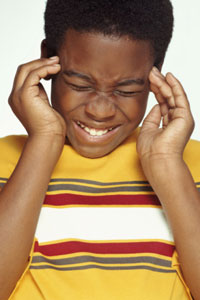Always bear in mind that trauma can occur in 2 ways which affect the brain – traumatic brain injury and traumatic stress. A traumatic brain injury is described as an impact to the head usually due to blunt force. Even if the skull is not fractured, the brain can be damaged from the force.
https://www.youtube.com/watch?v=55u5Ivx31og
When it comes to a traumatic brain injury, the stress adversely affects the amygdala, prefrontal cortex and hippocampus in the brain. Just remember though that both types of trauma can lead to long-term effects.
Diminished memory

Always bear in mind that both types of stress can adversely impact the memory of the individual. When it comes to a traumatic brain injury, damage to the brain can affect cognition, but this depends on the part of the head that is damaged. Memory, thinking and reasoning can be affected after the injury. As an outcome, neuropsychological rehabilitation is required to help the individual adapt to learning after damage to the brain.
As for traumatic stress, the brain produces increased levels of cortisol which has an adverse effect on the hippocampus. The hippocampus is positioned in the central region of the temporal lobe of the brain and responsible for converting short-term memories to long-term memories.
Sensory processing
Always bear in mind that permanent sensory damage can occur during a traumatic brain injury such as sight, smell, touch, taste and hearing. The damage on the brain from the damage is usually permanent.
Even though traumatic stress will not always lead to impairment to the senses, it can lead to an adverse reaction to certain stimuli. The activation of the amygdala during specific stimulus can result to an emotional response once exposed to the stimulus again.
Personality changes
The changes in personality can also occur from traumatic brain injury and traumatic stress. One of the areas affected by traumatic stress is the amygdala which is part of the limbic system in the brain. During the peak of traumatic stress, the amygdala has increased function in which the individual develops conditioned fear.
When it comes to a traumatic brain injury, the changes in personality are another lasting effect if there is impairment in the frontal lobe. The frontal lobe is one of the regions of the brain responsible for personality. A traumatic brain injury can cause aggression, social inappropriateness and acting out are observed after the injury.

